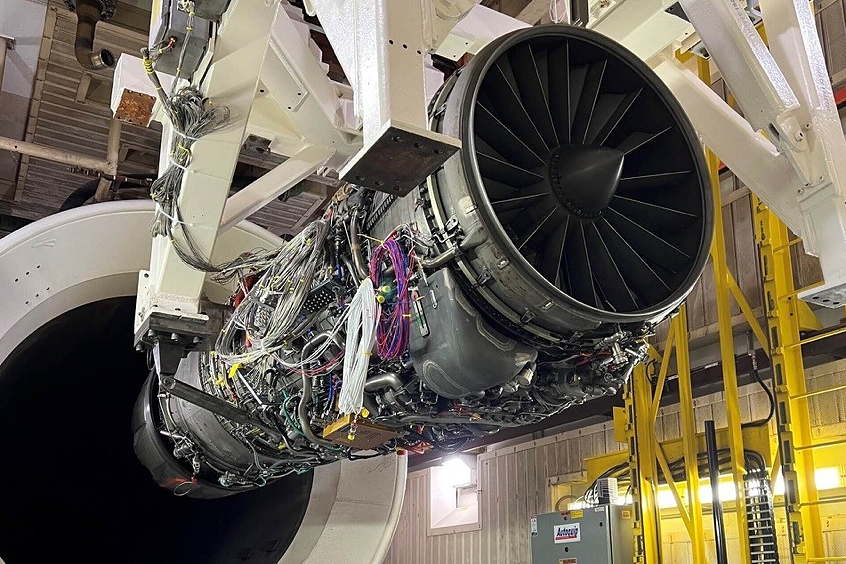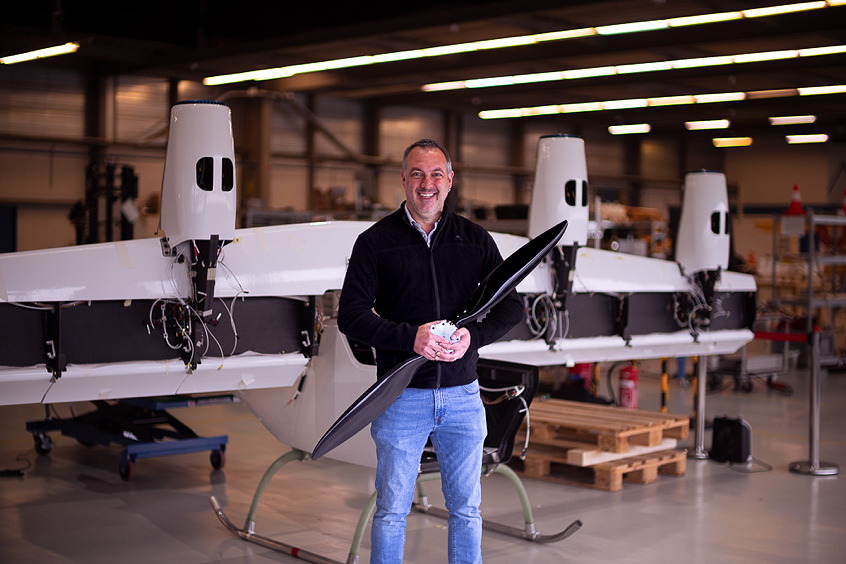Students at the University of the West of England (UWE Bristol) have begun a project aimed at developing one of the first fully electric research gliders to take flight in the UK.
A team of undergraduates studying aerospace engineering and other courses will take advantage of new laws permitting more experimental aircraft to take the skies to trial the green approach to aviation.
UWE Bristol is the first university in the country attempting to build and fly such a concept aircraft under the new regulations - called 'E conditions' - introduced in November 2014.
The plane will initially fly on battery power but there are plans to enable the manned glider to generate its own energy through wing-mounted solar panels.
Project leader Kim-Tobias Kohn and 20 students and will work on the assignment ahead of a demonstration flight at Aston Down airfield in the Cotswolds in 2017.
Kim, an associate lecturer in aerospace engineering, said it was important more environmentally friendly alternatives to fossil fuel-powered aircraft were pursued.
He said: “Every second, 11 tonnes of fuel are burned in aviation and the carbon emissions go where it is most harmful – near the ozone layer. So this is about the sustainability of the planet.
“The technology is now there to start looking at green aviation. You need to start small but you have to show it is actually possible. It is the right time to showcase this technology.”
A single-seater airframe, which has a 15m wingspan and weighs 225kg, has been purchased for the project and is being housed at the university's Frenchay campus. Students will attempt to install a lightweight electric motor into the nose and lithium-based battery in the body. They will also contribute towards the drafting of a pilot's operating handbook.
Kim hopes the project can replicate the success of Formula Student, an annual student engineering competition which sees undergraduates design, build, test, and race small-scale formula-style racing cars. But he added that the project would need financial support from industry sponsors to get it off the ground.
Kim, who is producing a series of a video blogs to chart the progress of the project, said: “The aim of the project is to get students out of the teaching room and into the practical arena, applying their knowledge and skills to the real world.
“I want students to think out of the box, get away from the theory, and experience what it's like to work on an aircraft. It provides a research platform for zero emission transport and offers a new area of student engagement and student project possibilities.
“We would like the glider to be solar powered, which would result in a flight time of six to seven hours, but to equip the wings would cost £300,000 currently.”
E-Conditions, introduced by the Civil Aviation Authority (CAA), allow small-scale research projects involving modified aircraft to take place. As part of the project, the UWE team plans to work closely with the CAA and Royal Aeronautical Society to pilot the process of setting up regulations for all new electric aircraft in the UK.
Kim, a qualified glider pilot, said: “Driven by our research and development, we are in a leading position to do so.”
| Contact details from our directory: | |
| UWE - University of Western England | Research/Consulting Services, Academic Institutions |
| Related directory sectors: |
| Personnel & Training |
Weekly news by email:
See the latest Bulletin, and sign up free‑of‑charge for future editions.

Amprius and Stafl team up for battery pack innovation

RISE engine efficiency project gains momentum

Dufour picks Mejzlik propeller blades for the Aero2
